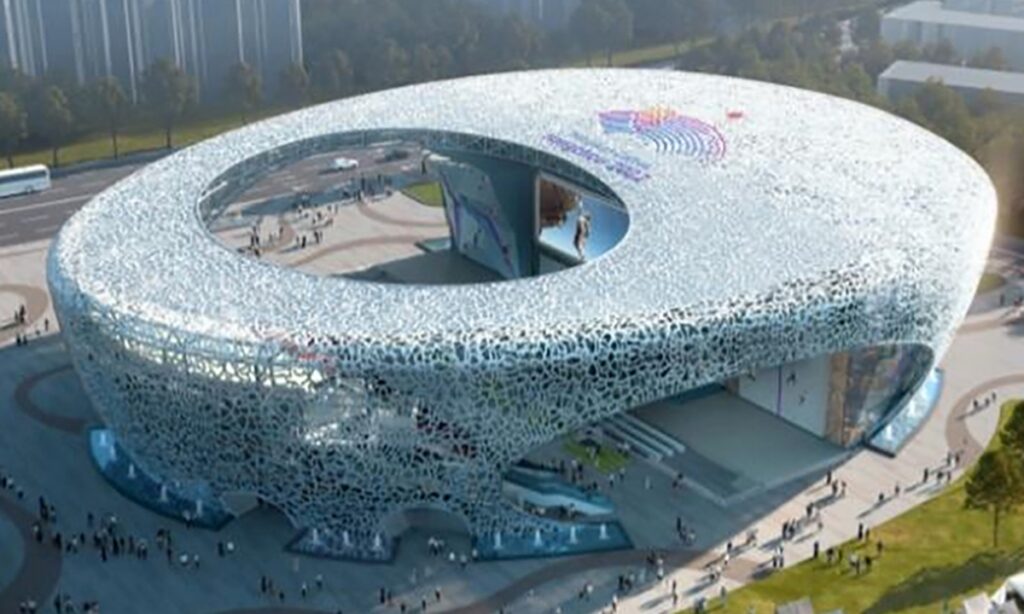The venues for the Hangzhou Asian Games and Para Games have been bustling with activity again as local people have been enjoying the rich legacies of the Asian multi-sport showpiece.
Since the preparations for the Asian Games, Hangzhou has set the goals of not only hosting a successful event but also building a city for international events and allowing its citizens to benefit from the legacies now that the Games have finished.
Following large-scale sports events, the reuse of stadiums and facilities has always been a challenging issue confronting host cities worldwide. One probable solution is to repurpose the idle venues, focusing on enhancing people’s livelihoods by providing mass fitness services that are accessible to individuals of all ages.
But Hangzhou has come up with a hybrid solution that connects people’s welfare with the sustainable development of the city.
Actually, before the Games, Hangzhou experimented with opening the venues to the public, making it the first city in China to open venues before an international multi-sports event.
After the Games, Hangzhou has fulfilled its commitment by introducing a hybrid model that combines mass fitness, youth training bases, and the hosting of large-scale professional sports events.
Focused on repurposing the venues, the hybrid model aims at opening the facilities to the public while continuing to host domestic and international events to boost the reputation of the city.
It was confirmed on Friday that six elite teams will compete in the 2023 Volleyball Women’s Club World Championship from December 13 to 17 in Hangzhou’s Huanglong Sports Center, which hosted gymnastics events during the Asian Games.
Meanwhile, the Badminton World Federation (BWF) has confirmed that the World Tour Finals 2023 to 2026 will be staged in Hangzhou.
This year’s event will be held from December 13 to 17. The finals are the highest-level event in the tour series.
Only the top eight players in each individual event’s annual world rankings are eligible to participate at these competitions.
Hangzhou has signed memorandums of cooperation with the International Canoe Federation, the International Hockey Federation, and the International Equestrian Federation.
In addition to the badminton finals, the inaugural International Super Cup of Canoe and Kayak will be held in Hangzhou in October 2024.
Hangzhou will also bid to host top international events such as the 2024 Global E-Sports Games, the 2024 World Archery World Cup, and the 2025 International Shooting Federation World Cup.
Among the 56 competition venues of the Asian (and Para) Games, 19 will be open to the public to promote mass fitness, 21 will be managed by third-party companies and will be made accessible at rates lower than prevailing local market prices, eight will be turned into training bases for professional teams and eight university venues will be used for educational purposes, according to the organizing committee of the Hangzhou Games.
Mao Genhong, chief spokesperson of the Hangzhou Asian Games, told the Global Times that the Games have yielded dividends in three aspects for Hangzhou.
First, the venues and facilities give people better access to exercise. The per capita sports area increased from 1.8 square meters to 2.71 square meters over the past eight years. Second, the Games helped upgrade Hangzhou’s infrastructure and the Para Games promoted the construction of barrier-free facilities and volunteerism.
Last, the Games drove the development of local sports. For example, the Tonglu Equestrian Center has laid a foundation for the future development of the industry, said Mao.
Chen Weiqiang, vice mayor of Hangzhou, said the venues will serve the city and its people after the Games.
“The landmark venues will host international events and large-scale activities, showing the image of Hangzhou as an open and inclusive modern city and leaving the legacy of the Asian Games to the city and its citizens,” Chen said.
Looking like a silkworm cocoon, the Shaoxing Keqiao Yangshan Sport Climbing Centre emerged from a deserted quarry and served as a sport climbing venue during the Games. The center will be transformed into a rock climbing park featuring competitions, training, workshops, research and tourism.
Chun’an Jieshou Sports Centre, whose road cycling courses run along the Qiandao Lake and impressed riders with its expanse of clear water and verdure, will become part of a water resort that will hold road cycling, mountain biking, bicycle motocross and triathlon training and competitions.
(Global Times)




